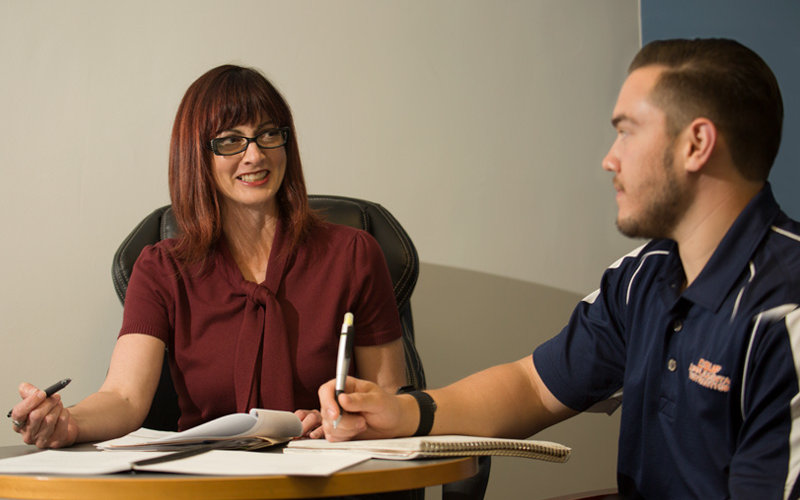
A campus program that helps students successfully complete historically difficult courses is being recognized for not only meeting its core mission but increasing retention and graduation rates.
Cal State Fullerton’s Supplemental Instruction Program, an academic assistance program that provides weekly, peer-led group study sessions for students in key gateway, bottleneck or historically difficult courses across 15 departments and five colleges will be honored May 25 with the 2018 Outstanding SI Program Award during the International Conference on Supplemental Instruction in Seattle, Washington.
Begun in 2007, the program initially focused on STEM courses and majors. Since then, it has grown to include coursework and areas of study from business to the humanities and kinesiology. This year, more than 330 course sections have or are being supported by SI and approximately 20,000 students have access to SI-supported courses.
It has received National Science Foundation and Department of Education funding and been recognized by the California State University as a Center for Excellence. It also has been named a Certified Supplemental Instruction Program by the International Center for Supplemental Instruction at the University of Missouri-Kansas City.
“Our program is recognized for our commitment to excellence in providing a large-scale, quality SI program, and the impact we have been able to make on student learning and development,” says Trista O’Connell, assistant director of the program. “It is an experience that affects all it touches: students, faculty, staff and administrators.”
And the program works: data shows that students who participate in the program pass the gateway courses at a rate of 83 percent, compared with 76 percent of those who do not take part in the program. In chemistry classes, the rate is higher: 85 percent completion rate vs. 76 percent for non-SI participants, says O’Connell.
What makes it the program succeed is the collaboration between faculty, staff and administrators and the strong, positive working relationship between the divisions of academic and student affairs, O’Connell notes. “A unique component of the program here is the position and role of SI faculty liaison. These are faculty members who lead the groups of SI leaders. They are responsible for coordinating and leading weekly meetings with the leaders, which aid in the further development of the leaders.”
What also is responsible for the program’s success is the active participation of its 120-130 SI leaders — students that work with a specific course section and professor for the semester. “They attend nearly all of the course lectures, serve as model students, facilitate weekly SI study sessions, conduct peer observations and attend weekly leader meetings.
“Throughout their service these student leaders provide support and mentorship to their peers while gaining experience in leadership, organization and teaching,” O’Connell explains.
“These students truly make the program a success by their diligent efforts with their peers,” says O’Connell. “And there is plenty of growth as they move from the first tier, the SI internship program, to the Senior Leadership Program. Their experiences truly aid many leaders in their academic and professional futures.”
“The SI Program at CSUF is a team effort across the campus,” says O’Connell. “It is through collaboration and communication that all voices are heard, and the needs of students, departments and greater campus community are met.”